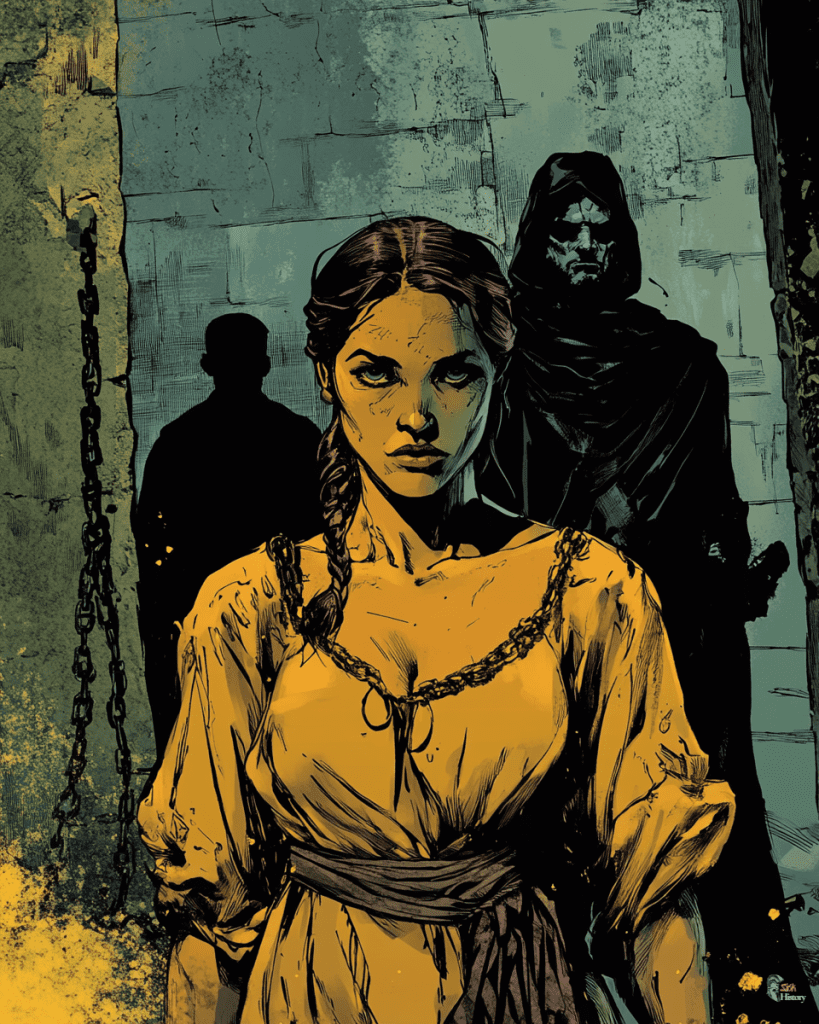In the sun-drenched fields of 8th-century northern Italy, a young woman named Anstruda made a decision that would echo through the ages. Her story, preserved in a remarkable charter from 721, offers us a tantalizing glimpse into a world where love could triumph over social barriers and where a woman’s determination could reshape her destiny.
Anstruda was a free woman of Piacenza, the daughter of a small landowner named Authari. In a society where women’s choices were severely limited, Anstruda’s heart led her to an impossible love – a servus, an unfree dependent of two brothers named Sigirad and Arochis. The law forbade such a union, but Anstruda was not to be deterred.
Anstruda approached Sigirad and Arochis with an audacious proposal in a twist that would have shocked her contemporaries. She offered to sell her own legal independence to them for the sum of three solidi, a significant amount at the time. This transaction would allow her to marry their servus, effectively joining him in his social status.
What makes this story truly remarkable is the degree of agency Anstruda exercised in this decision. Despite living in one of the most legally restrictive societies for women in early medieval Europe, Anstruda negotiated terms that gave her some control over her situation. The charter stipulated that while her future sons would remain dependents of Sigirad and Arochis, her daughters could buy their independence at marriage for the same amount Anstruda had received.
This charter broke multiple Lombard laws. It violated the prohibition on free-slave marriages, contradicted the assumption that the unfree were not legal persons, and flew in the face of statutes restricting female legal autonomy. Yet, somehow, it stood.
The story of Anstruda invites us to reconsider our understanding of peasant society in early medieval Italy. It reveals a world of surprising complexity and fluidity, where even those of modest means could engage in intricate social and economic relationships across considerable distances. Sigirad and Arochis, after all, were from Campione near Lugano, some 140 kilometers north of Piacenza.
As we ponder Anstruda’s tale, we’re reminded that history is not just a parade of kings and battles, but a tapestry woven from the lives of ordinary people who, in their own ways, defied the constraints of their time. Anstruda’s act of selling herself into servitude might seem counterintuitive to us today, but in the context of 8th century Lombard Italy, it was a strategic decision that allowed her to marry the man of her choice while negotiating protections for herself and her future daughters.
Ultimately, Anstruda’s tale is one of love, sacrifice, and surprising agency. It’s a story that bridges the centuries, reminding us that the human heart’s yearnings – and its capacity for bold action – are timeless.

